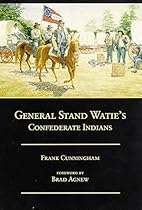

The most important political entity in pre-Spanish Mesoamerica was the Tenochca Empire; founded in 1428 when the three kingdoms of Tenochtitlan; Tetzcoco; and Tlacopan formed an alliance that controlled the Basin of Mexico and other extensive areas of Mesoamerica.In a unique political structure; each of the three allies headed a group of kingdoms in the core of the Empire. Each capital possessed settlements of peasants both in its own domain and in those of the other two capitals; in conquered areas nearby; the three capitals had their separate tributaries.In The Tenochca Empire Pedro Carrasco incorporates years of research in the archives of Mexico and Spain and compares primary sources; some not yet published; from all three of the great kingdoms. Carrasco takes in the total tripartite structure of the Empire; defining its component entities and determining how they were organized and how they functioned.
#557812 in Books University of Oklahoma Press 1998-09-15Original language:EnglishPDF # 1 9.00 x .66 x 6.00l; .77 #File Name: 0806130350224 pages
Review
0 of 0 people found the following review helpful. Stand Watie is held up as an epic hero who easily compares to Jo ShelbyBy C. E. DanielsThere was a brand of historical writing popular in the early 20th century that has largely been lost; a way of writing history as though it were an adventure novel. Frank Cunningham's biography of Stand Watie and of the conduct of the "Confederate Indians" during the War Between the States is a prime example of such writing; with all of its thrills and all of its faults.Cunningham's biography is clearly intended as a paean to a heroic figure whom history has forgotten. Stand Watie is held up as an epic hero who easily compares to Jo Shelby; William Quantrill; John S. Marmaduke; et al.; and Cunningham wants to make sure that his readers know this. Thus; Cunningham tends to de-emphasize Watie's faults and relishes his many successes. Cunningham remains true to historical events; however; and despite the rose tint of his glasses; his biography remains a gripping and engaging chronicle of history.And however dated it may be; Cunningham's treatment remains the only long-form history pertaining exclusively to Stand Watie and his Cherokee Mounted Rifles; without it; the historian is limited to asides and chapters in larger histories of Indians during the War Between the States. Cunningham is also valuable for his inclusion; often unedited; of contemporary battlefield and newspaper accounts and reports from the US and CS departments of Indian Affairs not easily found elsewhere.I would recommend this book for any armchair general interested in an often overlooked aspect of the Trans-Mississippi Theatre of the War Between the States and for scholars of Indians history during the War Between the States who aren't averse to a few eyebrow raising turns of phrase.2 of 2 people found the following review helpful. Very good bookBy jab40In the preface it is stated that the book is dated; but overall the book is an awesome read and flows nicely. I would tell anyone who wants to know more about Stand Watie to read this book. There's not a lot out there to chose from. A great book about a great man. You have to read this book!1 of 1 people found the following review helpful. A part of Civil War historyBy eric hauckAn historical account; not much insight into Stand Watie's life; family or beliefs. Probably only a Civil War buff would read this to the end.